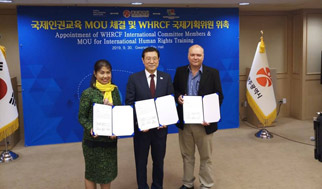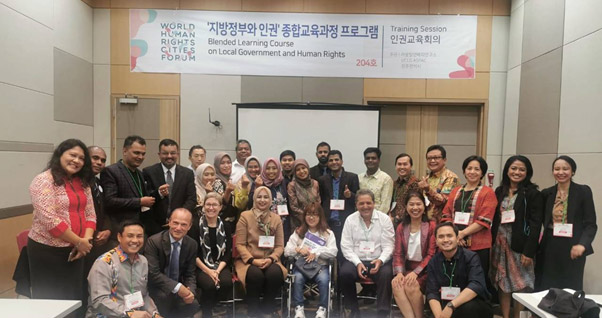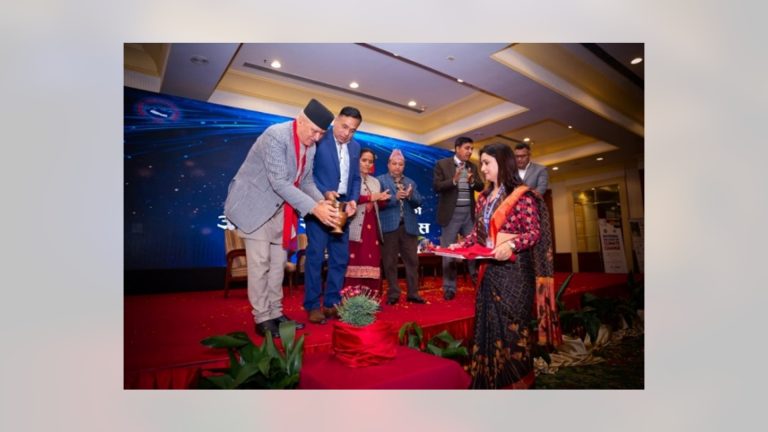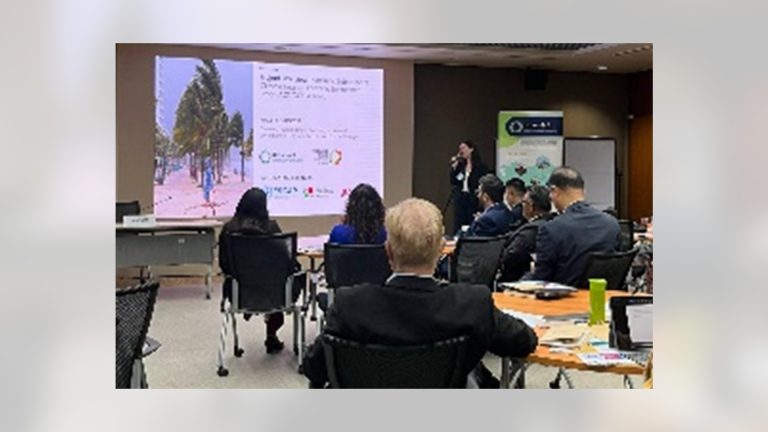30 September – 3 October 2019 | GWANGJU – The localisation of Sustainable Development Goals (SDGs) closely relates to the fulfilment of people’s rights. As inclusion and participation are key to urban development, UCLG ASPAC welcomes cooperation with The Raoul Wallenberg Institute of Human Rights and Humanitarian Law on Human Rights Cities (RWI) to promote a rights-based approach in localisation of SDGs in the Asia-Pacific region, through a three-year project collaboration. The first joint activity was a capacity development session in the World Human Rights Cities Forum 2019 held in Gwangju, South Korea from 30 September to 3 October 2019: The Blended Learning Course on Human Right Cities Approach to Localise SDGs in the Asia-Pacific Region.
Gabriella Fredriksson, Head of Inclusive Societies, Raoul Wallenberg Institute for Human Rights and Humanitarian Affairs (RWI), mentioned that, while there is no universal standards for human rights city, nor is there an accreditation system or a monitoring mechanism. She introduced the definition of Human Rights Cities defined at the 2011 World Human Rights Cities Forum as, “One whose residents and local authorities, through learning about the relevance of human rights to their daily lives (guided by a steering committee), join in ongoing learning, discussions, systematic analysis and critical thinking at the community level, to pursue a creative exchange of ideas and the joint planning of actions to realize their economic, social, political, civil and cultural human rights.”
For the realisation of Human Rights Cities, she also mentioned four types of actors that need to play their roles: Societal Actor, Democracy Actor, Welfare Actor, and Employer with their respective responsibilities. Moreover, it is important to apply the following three basic principles, namely non-discriminatory (equality), participation (inclusion) and transparency (accountability). Concluding her sharing, she mentioned that cities are strategically placed to facilitate local implementation of human rights and sustainable development, while linking human rights cities with SDGs, creating meeting space for people with different backgrounds, promoting human rights education and training, and ensuring that all public services are accessible.
The Blended Learning Course was enriched by the sharing of SDGs localisation experiences from Wonosobo and Jember Regencies and Utrecht. All of the speakers explained how to apply the human-rights-based framework in the implementation and monitoring of SDGs.
 In conjunction with this, on 30 September 2019, during the 9th World Human Rights Cities Forum (WHRCF) in Gwangju, RWI, UCLG ASPAC and the City of Gwangju signed a Memorandum of Understanding (MoU) on Advocacy and Capacity Development on Human Rights Based Approach and Sustainable Development Goals for Cities and Local Governments in the Asia-Pacific Region. The MoU allows respective parties to collaborate in the area of capacity building for three years. One of the key activities is a training programme organised annually in Gwangju in conjunction with the annual World Human Rights Cities Forum.
In conjunction with this, on 30 September 2019, during the 9th World Human Rights Cities Forum (WHRCF) in Gwangju, RWI, UCLG ASPAC and the City of Gwangju signed a Memorandum of Understanding (MoU) on Advocacy and Capacity Development on Human Rights Based Approach and Sustainable Development Goals for Cities and Local Governments in the Asia-Pacific Region. The MoU allows respective parties to collaborate in the area of capacity building for three years. One of the key activities is a training programme organised annually in Gwangju in conjunction with the annual World Human Rights Cities Forum.
RWI is an independent academic institution established in 1984 in Lund, Sweden. RWI carries out a wide range of research, academic courses and institutional capacity development programmes internationally, with a particular focus on human rights field, and with the support of Swedish Development Cooperation.
The City of Gwangju (South Korea) joined UCLG ASPAC as member in 2001. Gwangju is the 5th biggest city in South Korea and well recognised as the Human Rights City. Gwangju has conducted many activities to promote human rights. The annual World Human Rights Cities Forum, started in 2011, has become major event where leaders, practitioners and academia in human rights gather and share their knowledge, ideas and insights. UCLG ASPAC has been supporting Gwanju in promoting human right issues in Asia and the Pacific region.











